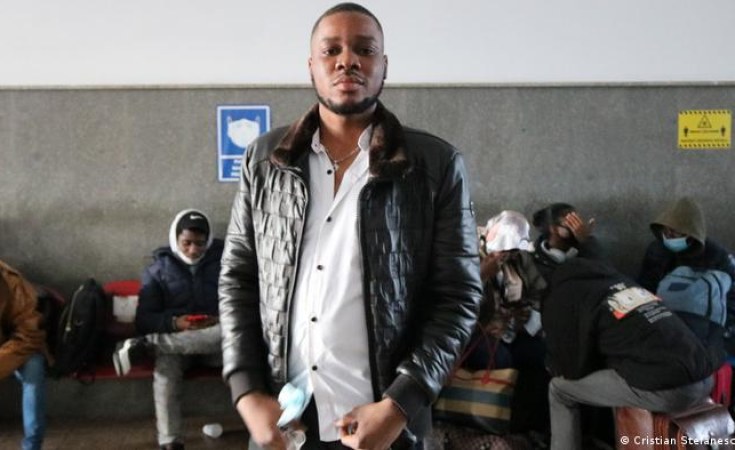Cape Town — More than four million people have now fled Ukraine for neighbouring countries amidst the Russian invasion. However, black and brown students who have fled have been detained by EU border authorities in what has been condemned as "clearly discriminatory" and "not acceptable", reports Democracy Now.
Although all neighbouring EU countries pledged to accept refugees from Ukraine, as people flee across borders, a complicated story emerges of who is perceived and received as good, bad, and ideal refugees in modern Europe, reports Yvonne Su for The Conversation Africa.
An collaborative investigation, by The Independent, Lighthouse Reports and other media partners, revealed that Ukraine residents of African origin who have crossed the border to escape the war have been placed in closed facilities, with some having been there for a number of weeks.
Maud Jullien, an investigative editor at Lighthouse Reports, explains how the European Union's temporary protection directive creates a double standard by permitting Ukrainian citizens to enter neighbouring countries but barring third-party nationals from entering. Jullien has said that four students who have fled the Russian invasion are being held in a long-term holding facility Lesznowola, a village 40km from the Polish capital Warsaw, with little means of communication with the outside world and no legal advice. Polish border police confirmed that 52 third-country nationals who have fled Ukraine are currently being held in detention facilities in Poland.
The International Organisation for Migration (IOM) said they were aware of three other facilities in Poland where people who are not Ukrainian, and who have fled the war, are being detained. This is despite an EU protection directive dated March 4, 2022 which states that third-country nationals studying or working in Ukraine should be admitted to the EU temporarily on humanitarian grounds. It states that it also applies to "nationals of third countries other than Ukraine, residing legally in Ukraine, who are unable to return in safe and durable conditions to their country or region of origin".
Jeff Crisp, a former head of policy, development and evaluation at UNHCR, said it was "clearly unsatisfactory and discriminatory" for third-country nationals who have fled from Ukraine to be held in detention centres in EU states, "not least because of the trauma they will have experienced in their efforts to leave Ukraine and find safety elsewhere". He added: "They should be released immediately and treated on an equal basis with all others who have been forced to leave Ukraine," reports The Independent.
In March, some African countries intensified efforts to evacuate their nationals from Ukraine amid reports of mistreatment and racial profiling of Africans in war-ravaged Ukraine. The African Union urged governments to respect international law and assist all those fleeing from the war in Ukraine after African students raised concerns of discrimination at border points.
Deutsche Welle reported that some students are happily back with their families, but many remain stranded inside Ukraine and at border points with neighbouring Poland. Other Africans have chosen to stay inside Ukraine, particularly those without residency permits.


